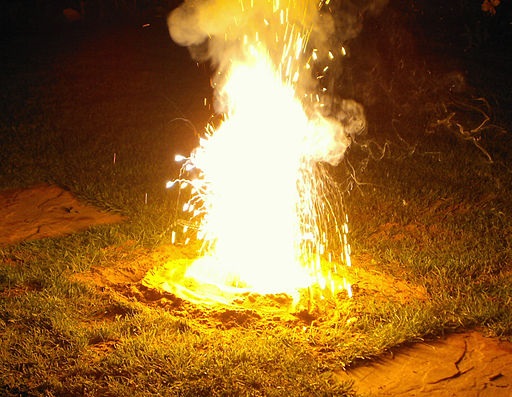Grab a calculator and a copy of the periodic table (This test has only 10 questions, but may take 15 - 20 mins). |
||||||||||||||||||||||
Q1-2: A student used the following reaction to try to produce 20.0 g of copper(II)chloride.
CuCO3 + 2HCl → CuCl2 + H2O + CO2 [Relative atomic masses Cl = 35.5; Cu = 63.5] |
||||||||||||||||||||||
1. The formula mass of copper(II)chloride and the number of moles of copper(II)chloride produced is …
|
||||||||||||||||||||||
2. What mass of copper(II)carbonate does the student need to react with excess hydrochloric acid to make the 20.0 g of copper(II)chloride? [Mr of CuCO3 = 123.5]
|
||||||||||||||||||||||
| 3. Which of the following statements about chemical reactions is true?
The total mass of the reactants is …..
|
||||||||||||||||||||||
4. In the thermite reaction aluminium powder reacts very exothermically with iron(III)oxide displacing molten iron. The equation for the reaction is: 2Al + Fe2O3 → Al2O3 + 2Fe What mass of molten iron is formed from 0.1moles of iron(III)oxide? |
 Author:Caesium Fluoride | CC 3.0 |
|||||||||||||||||||||
|
||||||||||||||||||||||
| 5. 100cm3 of a sodium hydroxide solution was prepared by dissolving 0.2 moles of sodium hydroxide, NaOH, in water. [Mr of NaOH = 40]
What is the concentration of this solution in g dm-3?
|
||||||||||||||||||||||
6. How many CaCO3 particles are there in 2 moles of CaCO3?
|
||||||||||||||||||||||
| 7. What amount, in moles, is 3.0g of carbon and how many carbon atoms does it contain?
[Ar of carbon = 12]
|
||||||||||||||||||||||
8. A mass of 3.00 g of magnesium was reacted with 0.200 moles of ethanoic acid in the following reaction: Mg + 2CH3COOH → (CH3COO)2Mg + H2 Calculate the number of moles of magnesium used and determine the reagent in excess. |
||||||||||||||||||||||
|
||||||||||||||||||||||
| 9. An ore of titanium contains 36.8% iron, 31.6% titanium and 31.6% oxygen.
Determine the simplest whole number ratio for the moles of atoms.
|
||||||||||||||||||||||
| 10. Iron(III)hydroxide is a brown precipitate formed during the test for iron(III) ions.
FeCl3 (aq) + 3NaOH (aq) → Fe(OH)3 (s) + 3NaCl (aq) What amount, in moles, of each reactant would be needed to produce 0.6 moles of iron(III)hydroxide? |
||||||||||||||||||||||
|
||||||||||||||||||||||